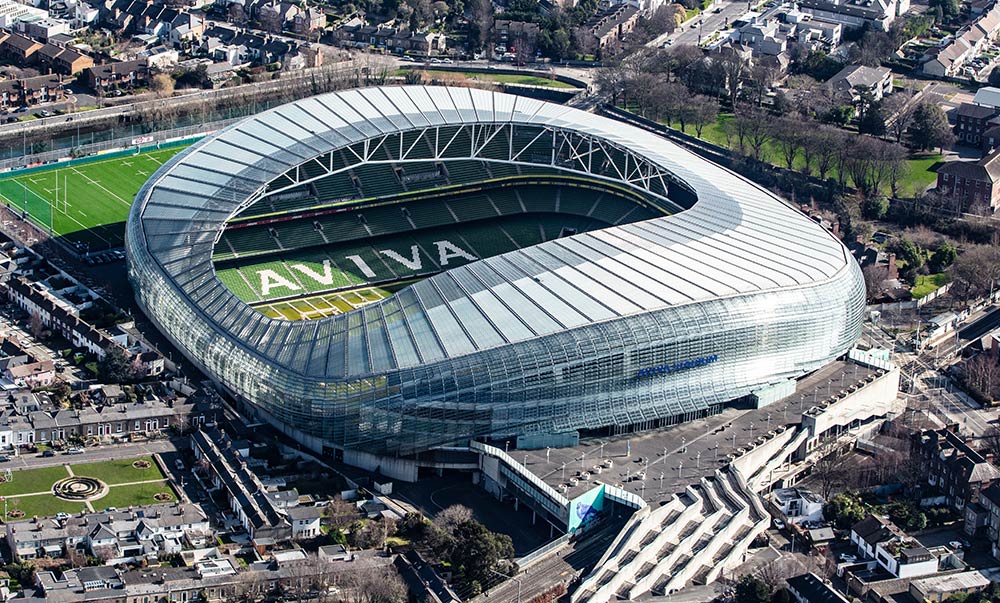Ireland’s Major International Sports Events Policy and Strategy Framework: Implications for the Broader Event Industry
In October 2024, the Irish government unveiled its Major International Sports Events Policy and Strategy Framework, a pivotal initiative aimed at establishing Ireland as a leading destination for global sports events. This policy provides a strategic roadmap for selecting and supporting major international sports events, emphasizing economic impact, community benefits, and sustainability. While focused on sports, this framework will also have significant ripple effects on the broader Irish event industry, including infrastructure improvements, professional skill development, and new economic opportunities.
Overview of the Policy and Strategy Framework
The Major International Sports Events Policy and Strategy Framework was developed in alignment with the Programme for Government: Our Shared Future. The framework prioritizes events that:
- Drive Economic Impact: Events that deliver a positive economic return through tourism, job creation, and local business stimulation.
- Promote Sporting Legacy: Events that encourage increased participation in sports and promote high-performance athletics.
- Foster International Relations: Events that enhance Ireland’s global reputation and diplomatic engagement.
- Champion Diversity and Inclusion: Events that prioritize diversity in gender, ability, and culture.
- Emphasize Sustainability: Events committed to environmentally responsible practices and human rights considerations.
This comprehensive policy ensures Ireland selectively bids for events aligned with national development goals.
Key Implications for the Broader Event Industry
Though the framework primarily targets sports events, it introduces substantial developments that can benefit the entire event landscape in Ireland.
1. Enhanced Infrastructure and Facilities
Hosting major international sports events necessitates top-tier venues and infrastructure. The development and modernization of these facilities will not only support sports but also become versatile spaces for cultural events, concerts, and conferences. The construction of the proposed national cricket stadium near Dublin, will provide a multifunctional venue suitable for various events.
2. Professionalization and Skill Development
The demands of hosting high-profile events will elevate industry standards. Irish event professionals will gain experience in areas such as security planning, crowd management, and logistics—skills that are transferable to music festivals, corporate conferences, and exhibitions. The professionalization of event management practices will create a more skilled workforce across the entire event sector.
3. Economic Stimulus and Tourism Boost
Major sports events attract international visitors, driving revenue for local businesses and accommodation sectors. Events like Taylor Swift’s Eras Tour exemplify how large-scale events can transform local economies. This policy ensures increased event-related tourism, benefiting a wide range of businesses in hospitality, retail, and transport.
4. Policy Development and Government Support
The establishment of a dedicated framework for sports events can serve as a blueprint for other areas of the event industry. Standardizing processes, clarifying government support, and creating transparent funding mechanisms will benefit other sectors such as music festivals, cultural fairs, and industry trade shows.
5. Community Engagement and Social Cohesion
Large-scale events have the power to unite communities and create lasting social impact. Events held under this framework will emphasize local engagement and encourage participation in parallel cultural or educational events, enriching Ireland’s community life.
Challenges and Considerations
While the framework presents numerous benefits, it also introduces challenges requiring careful management:
- Resource Allocation: A focus on major sports events could divert funding from smaller cultural and community events.
- Sustainability: Large events often have significant environmental footprints. The policy mandates adherence to sustainable practices to address this issue.
- Community Disruption: Major events can disrupt local life, emphasizing the need for proactive community consultations.
- Market Saturation: Hosting multiple high-profile events close together could lead to audience fatigue. The policy’s limit of hosting no more than two major events within five years aims to mitigate this risk.
Conclusion
The Major International Sports Events Policy and Strategy Framework represents a forward-thinking approach to positioning Ireland as a global hub for major events. While designed for sports, its benefits will resonate across the entire event industry, promoting professional growth, economic expansion, and community enrichment. The framework offers a roadmap not only for achieving sporting excellence but also for strengthening Ireland’s broader event landscape in a sustainable and inclusive manner.
By fostering infrastructure growth, enhancing professional expertise, and encouraging sustainable practices, this policy sets the stage for a more vibrant and capable Irish event industry. The successful implementation of this strategy will not only elevate Ireland’s profile as a destination for major events but also create lasting benefits for local businesses, communities, and event professionals.
Sources:
- Ireland’s Major International Sports Events Policy and Strategy Framework (gov.ie)
- National Cricket Stadium Plans Near Dublin for the 2030 T20 World Cup (Reuters)
- Taylor Swift’s Eras Tour Economic Impact (Wikipedia)
- Ireland’s Sports Funding Increase After Olympic Success (The Times)
- Proposed Hosting of the 2072 Olympics by Ireland (The Sun)
- Croke Park and UEFA Euro 2028 (The Sun)





